Executive Courses
Upskilling Your Workforce through TDSI’s Executive Courses
TDSI’s Executive Courses under its Continuing Education arm look at domain-specific disciplines in systems thinking and systems engineering, as well as any in-trend/ emerging technologies, to upskill the Singapore defence workforce in line with the nation’s advocacy for lifelong learning. Embracing the digital transformation landscape today, participants will benefit from these courses, learning from subject matter experts from the defence technology community and/or academic institutions, on valuable topical knowledge and skillsets to manage real-world applications. This allows course participants to strengthen their capabilities and value-add to their employing organisations.
TDSI’s Executive Course “Military Navigation Systems Workshop” for Singapore’s Defence Technology Sector
Given the critical importance of navigation in modern military systems and operations that leverages on smart technologies, access to reliable navigation data is imperative while denying them to adversaries during military operations. The executive course on “Military Navigation Systems Workshop” aims to highlight the vulnerabilities in military navigation systems under different deployment scenarios, and share potential corresponding counter-measures. Participants from the defence technology community were appreciative of the knowledge gained from the workshop and acknowledged that the learning was highly relevant and impactful to their current field jobs/ projects. This workshop is well-recognised by the Professional Engineers Board and qualified for 6 Professional Development Units.
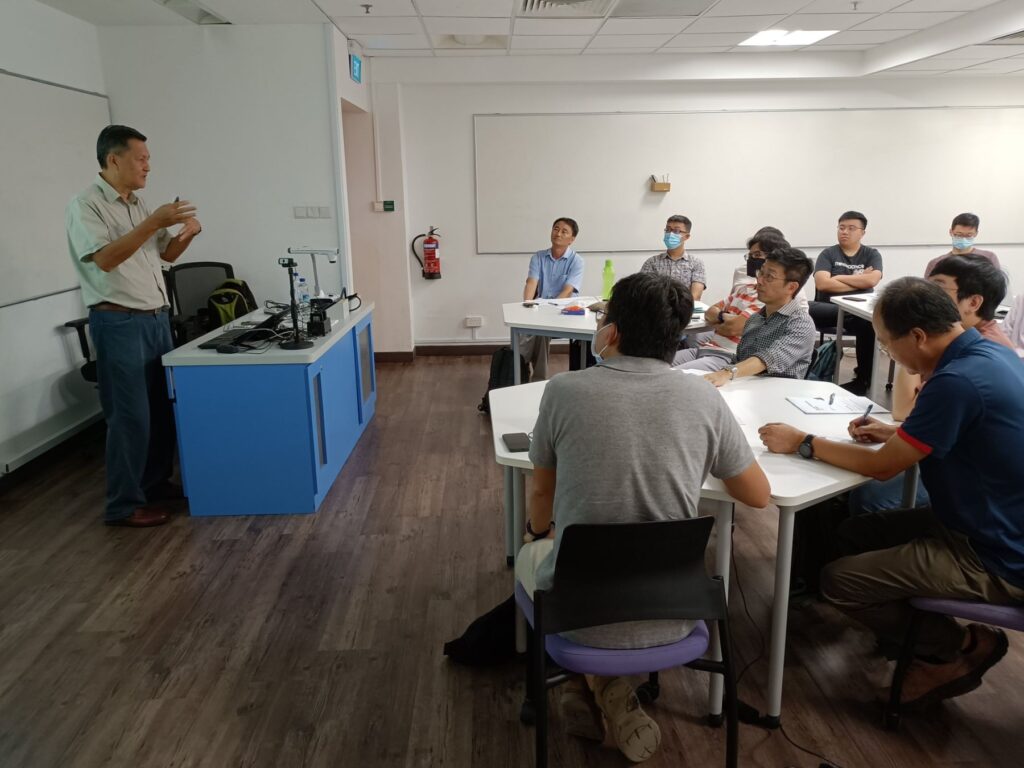
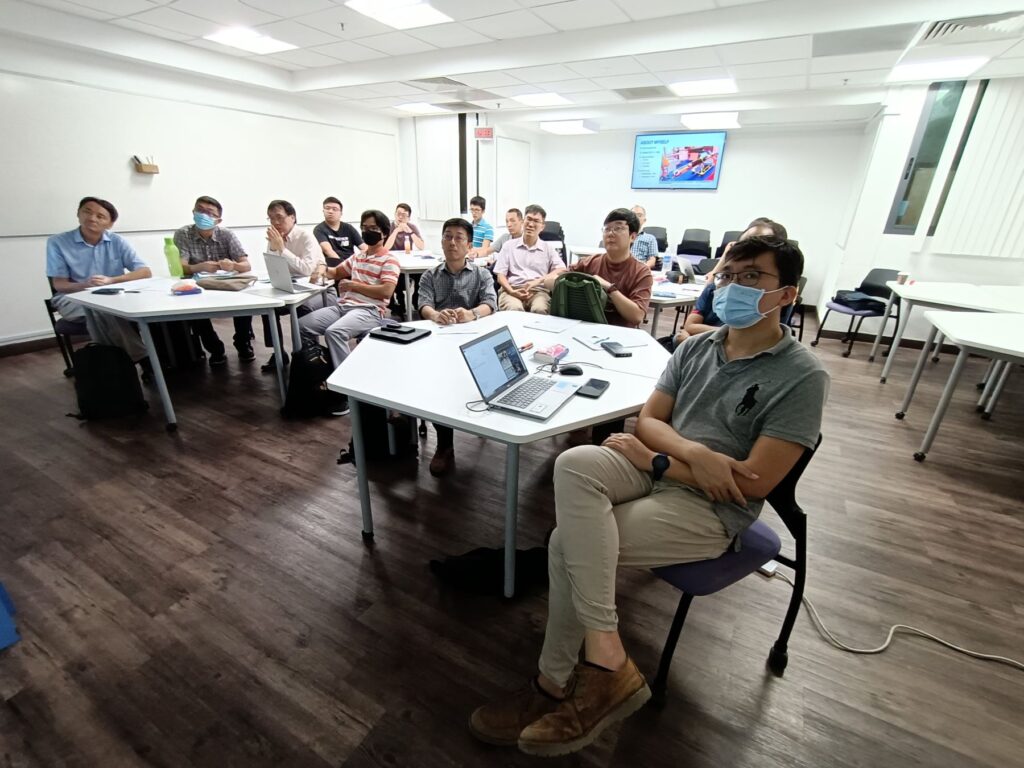
TDSI’s Executive Course “Systems Engineering and Analysis of Emerging Advanced Technologies for Defence Applications”
It is important for the Singapore defence forces to be at the frontier and be knowledgeable about emerging technologies for defence applications. The executive course on “Systems Engineering and Analysis of Emerging Advanced Technologies for Defence Applications” aims to present concepts and methods for engineering and analysing emerging advanced technologies, that include artificial intelligence and directed energy weapons, for defence applications. Course participants from the defence technology community have learnt and gained insights from the course that introduced concepts in complexity theory, strategic thinking, technology assessment, systems engineering and systems analysis. Course participants were appreciative that the learning gained have value-added to their current work with their primary affiliated organisations in the defence eco-system.
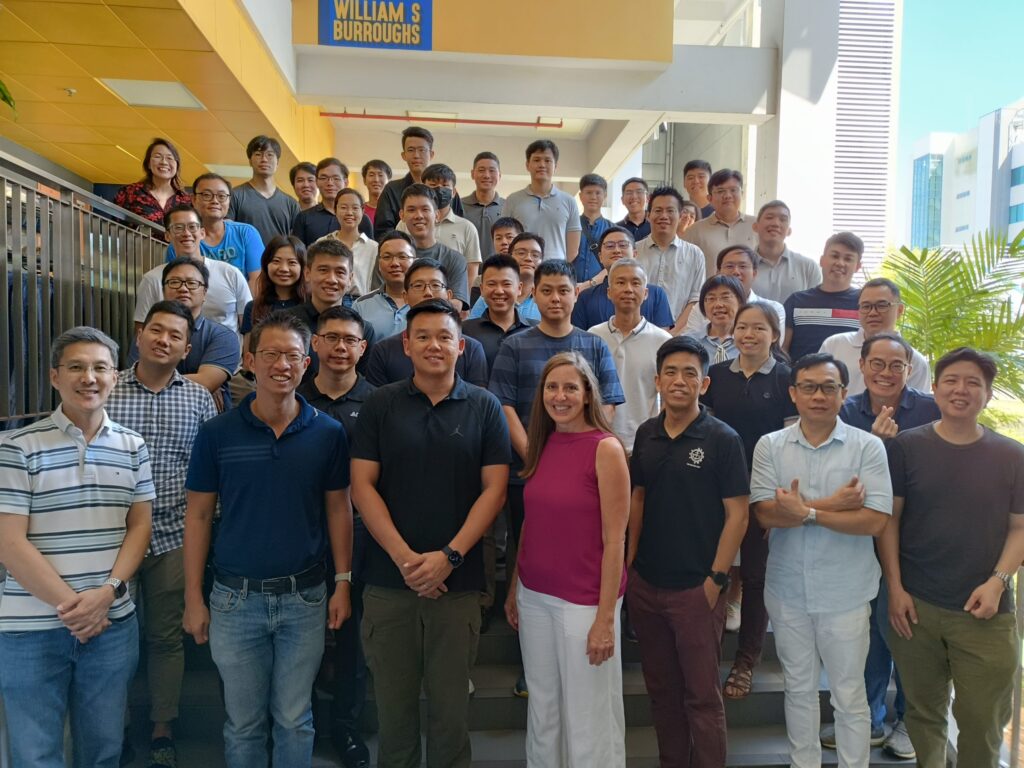
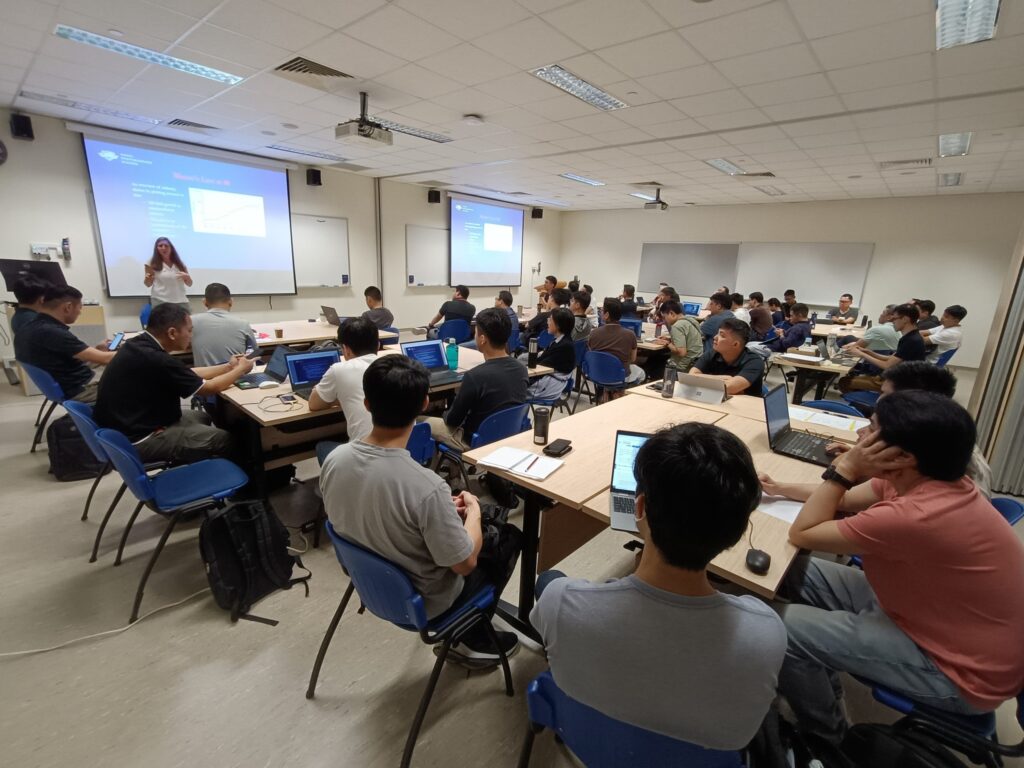
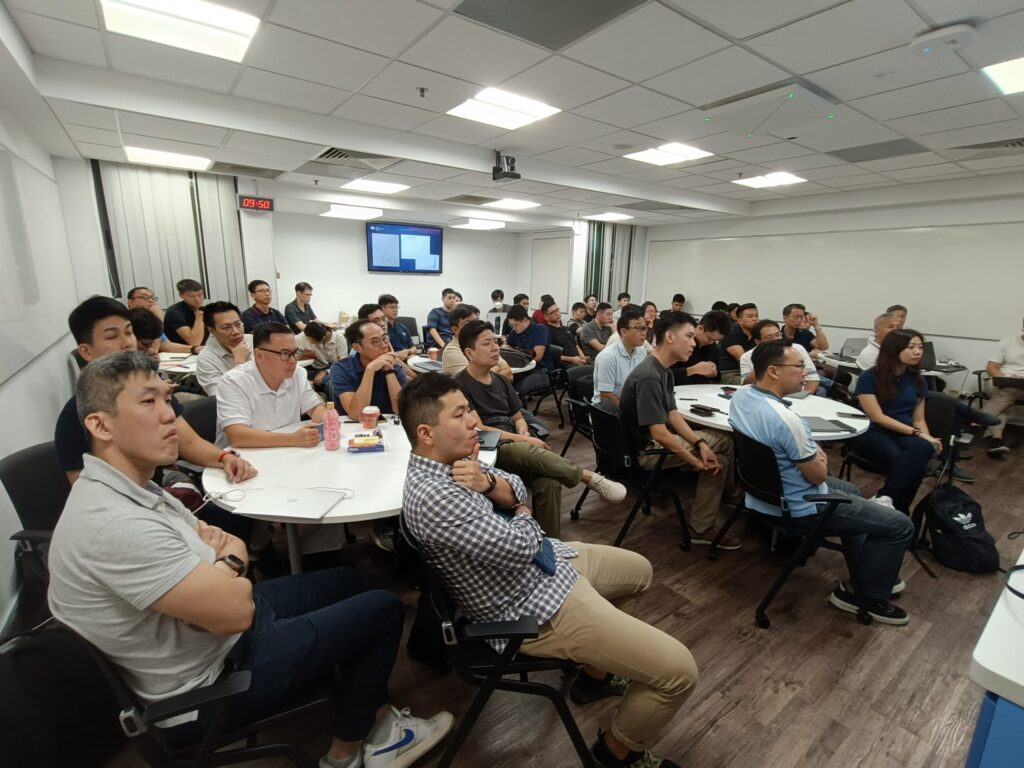
TDSI’s Executive Course “Generative Artificial Intelligence”
Artificial Intelligence (AI) technologies have been widely adopted in operations and work processes/ systems at the national level and in various industries. Generative AI is the latest cutting-edge technology that has been launched to extreme popularity, with progressive adoption by enterprises and industries because of its capabilities that can boost productivity and value-add decision-making, alongside many other deployment opportunities. Recognising the increasing importance of Generative AI for the defence sector, TDSI organised the executive course on this in-trend technology for the Singapore defence technology community to equip them with the fundamental knowledge of key concepts and applications of Generative AI, included algorithms such as generative adversarial networks (GANs) and variational autoencoders (VAEs). Course participants learnt how Generative AI could enhance military operations, from synthetic training data generation to scenario planning and decision support systems. This course is well-recognised by the Professional Engineers Board and qualified for 12 Professional Development Units.
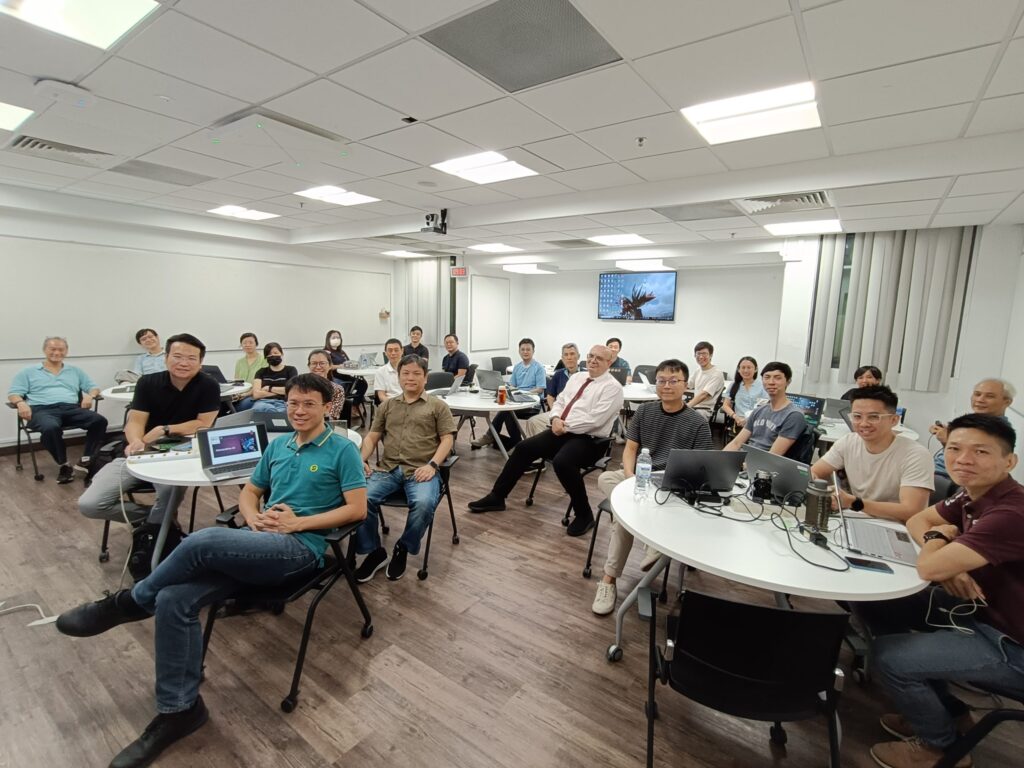
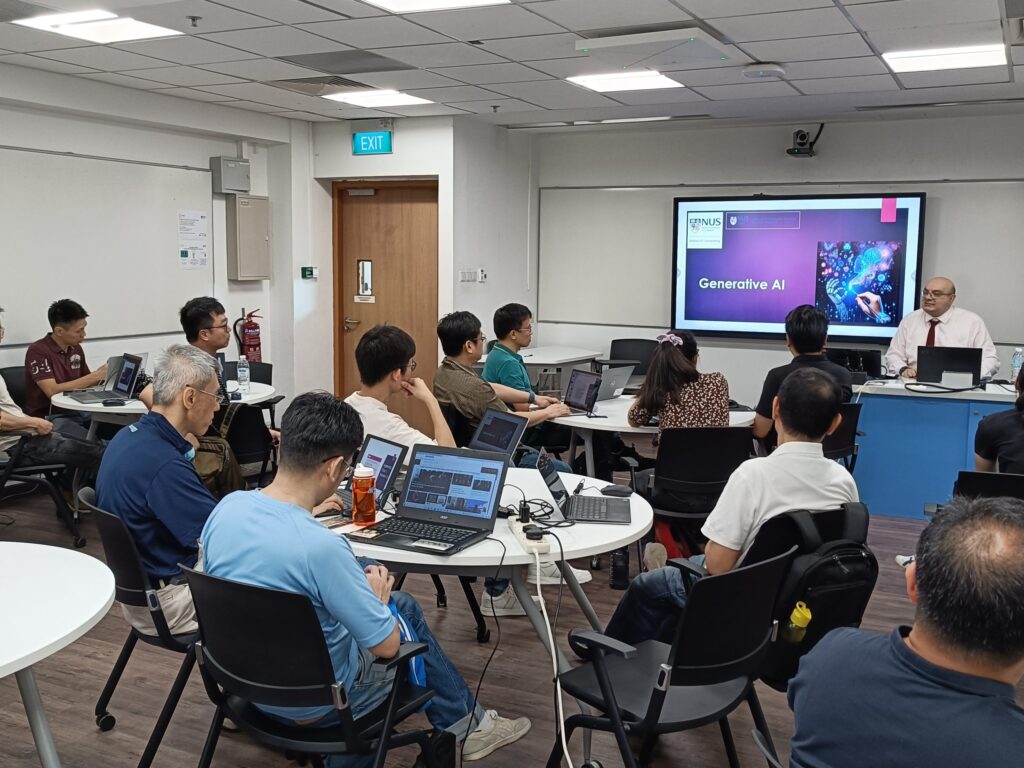
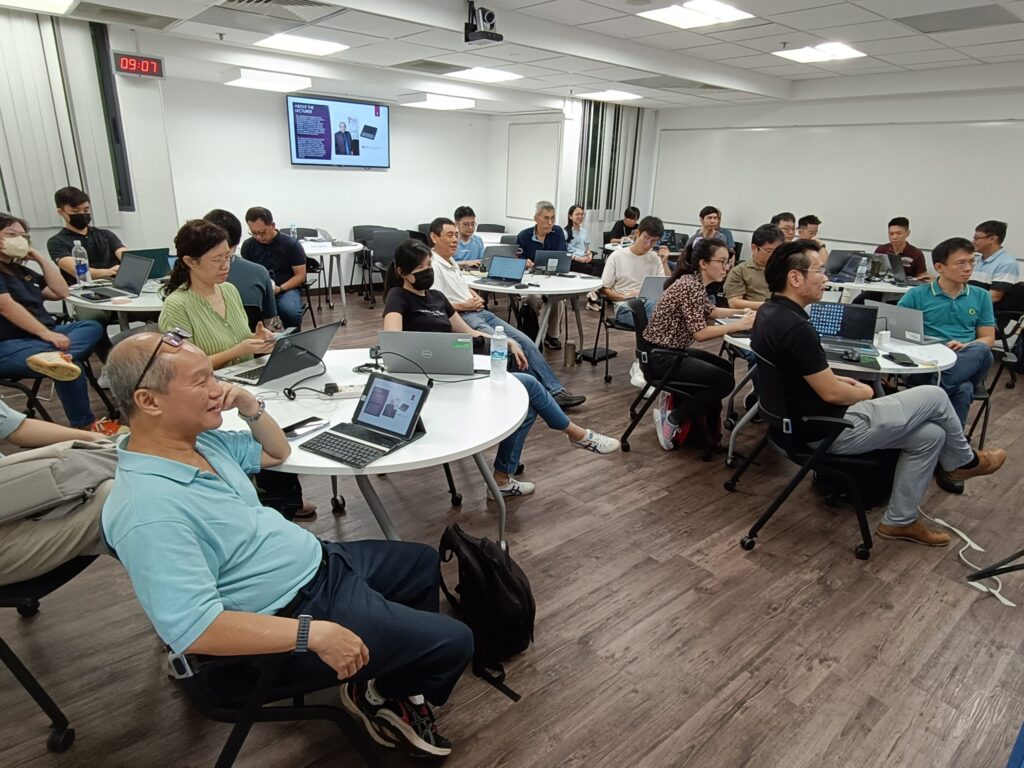

Expert Seminar: New Space – A New Opportunity to Democratizing Space with New Applications
Overview
Learning Outcome
Course Outline
Who Should Attend
Lorem ipsum dolor sit amet, consectetur adipiscing elit. Ut elit tellus, luctus nec ullamcorper mattis, pulvinar dapibus leo.
Speakers

Low Kay-Soon
Professor
Kay-Soon is a Professor in the Department of Electrical and Computer Engineering, Faculty of Engineering, National University of Singapore. He is also the director of Satellite Technology and Research centre (STAR). Before his present appointment, he was the centre director of satellite research centre (SaRC) of Nanyang Technological University. He has worked in the academia as well as in the industry. He has successfully supervised 55 graduate theses and delivered 50 funded projects. He has served as Consultants to many companies and had a number of patents on nonlinear circuits, UWB systems, solar energy management system and imaging sensor. His present funded projects are in the field of satellite mission development.
His satellite team has successfully developed and launched six satellites. These satellites cover different classes of satellites ranging from picosatellites to microsatellite. They weigh between 193g to 123kg. In orbit experiments include remote sensing, fault tolerant system, peak power solar energy tracking, model predictive control of satellite attitude, radio occultation experiment, precision navigation, inter-satellite data relay system has been successfully demonstrated. Dr Low received the best paper award from the IEEE conference on Industrial Electronics and Applications (ICIEA) in 2014, the Singapore Public Administration Medal (Bronze) in 2014, and Defence Technology Prize (Research & Development category) in 2011. Under his leadership, SaRC received a joint award together with ST Electronics (satellite systems) Pte Ltd, DSO National laboratories and CRISP from the President’s Technology Award in 2016.
He has been a senior member of IEEE since 2000. He received his PhD degree in Electrical Engineering from the University of New South Wales.
Details
- 13 Oct 2020, 10:00 am - 12:00 pm
- 2 hours
- F2F session at LT4 and Online via Zoom
Status
This event is now closed.
